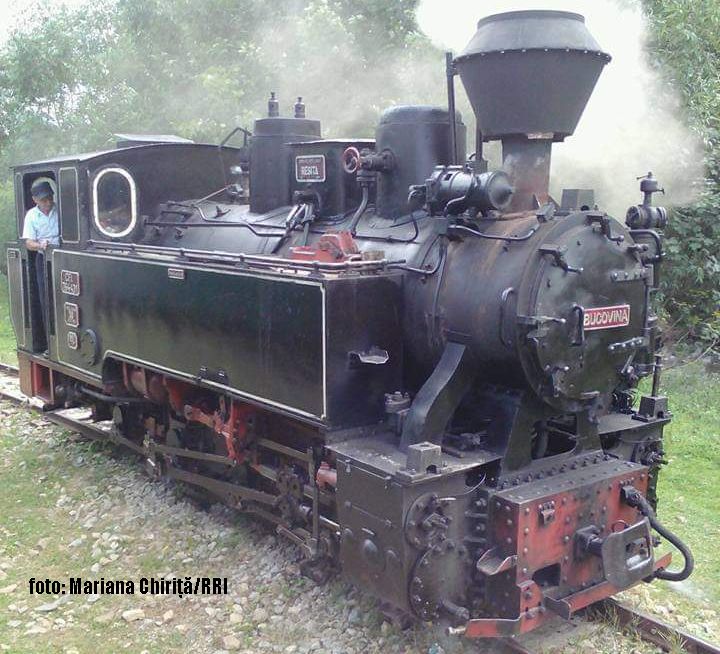Writer Marin Sorescu
Marin Sorescu was one of Romania's most prolific and beloved poets.

Christine Leșcu, 26.02.2023, 14:01
Writer Marin Sorescu was born in February 1936 in the village of Bulzești, in Dolj County, in southern Romania. A poet, playwright, prose writer and literary critic, Marin Sorescu was one of the best-known and popular Romanian writers from the communist period, both in Romania and abroad. After his death in 1996, aged 60, his work, however, fell somewhat out of fashion. Literary historian Paul Cernat tells us more:
Marin Sorescu hailed from Oltenia, a region that features in many ways in his works, especially in his cycle of poems entitled At Lilieci, which is one of his masterpieces. Sorescu went to high school in Craiova and then the military school in Predeal, an experience that left a deep impression on him and which he wrote about in a series of poems that were published after his death. He studied at the Faculty of Philology in the late 1950s and graduated in 1960. Soon afterwards he made his debut as a poet in the early days of the post-Stalinist thaw, something he took advantage of.
It didn’t take Marin Sorescu long before he made a name for himself. He wrote and published a lot and became involved in the literary life of the day, while his works were translated into other languages. Apart from poems, he also wrote drama and children’s books. His popularity helped him evade the negative consequences of a scandal known as the transcendental meditation. In the early 1980s, the communist regime marginalised a series of influential intellectuals who had taken part in yoga and Oriental mediation sessions. Although he took part in these sessions himself, Marin Sorescu lost neither his job nor his status. Literary historian Paul Cernat:
Beginning in the 1970s, Sorescu began to be known not only in Romania, but also abroad. He was known as a globetrotter, and someone whose work was translated into many languages, in many countries. He had close ties with many important poets from abroad, whom he interviewed. Some of these dialogues were published in 1985 in a volume called Inspiration treatise. He was also involved in many a polemic. He was a sarcastic literary critic, but also full of verve and ideas. He had already acquired legendary status by the time he was 50. In the 1980s he was a landmark of Romanian literary life from many points of view. After 1990 he also pursued a political career, including serving as minister of culture. Many were intrigued by his political choices post-1990. He wasn’t very inspired in this respect and besides, the times were very tense, there was a lot of political warmongering, something which perhaps contributed to his early demise. He died of cancer at the end of 1996, not making it to 61.
In the few years he got live in the 1990s, Marin Sorescu won the Herder Prize and was awarded his doctoral title in philology by the University of Bucharest. 15 volumes, including poems, essays, diaries and a novel were found in manuscript form at his death. Literary historian Paul Cernat tells us more about the specificity of Marin Sorescu’s writings:
It’s the combination of humour and seriousness, even tragic. I see in Marin Sorescu the literary equivalent of Brâncuși. I believe this combination of demythologising freshness and profound mythology is one of his characteristics. Also, the combination of a typically Oltenian facetiousness and restless meditation on the purpose of life, its essence. Marin Sorescu is a homo duplex, laughing with one eye, crying with the other. It depends what aspect of this personality we want to emphasise. Some have viewed him as more of a parodist or humorist. But I believe he is equally a serious soul who in fact wants to rehabilitate the myths and rescue them in the modern world through irony, a familiar tone, communication. I think he achieved this. Moreover, his work translates well abroad. He won all kinds of international awards, but his work is a very efficient combination of localism and universality. I’d say that his afterlife also deserves to be looked at, because it had its own ups and downs. After appearing to be forgotten for a while, things have settled down recently and his work is again appreciated.
Many of Marin Sorescu’s poems are available in English, with the first collection of his poems first appearing in English in 1983 in a book entitled Selected Poems, followed, in 1987, by The Biggest Egg in the World, a selection with translators including Ted Hughes and Seamus Heaney. The 2004 collection The Bridge, published in 1997, brings together the poems written by Marin Sorescu from his sickbed over the course of five weeks. Twenty years later, these poems inspired the American composer Michael Hersch to write the music and the libretto for his opera On the Threshold of Winter, which opened in New York in 2014.






























